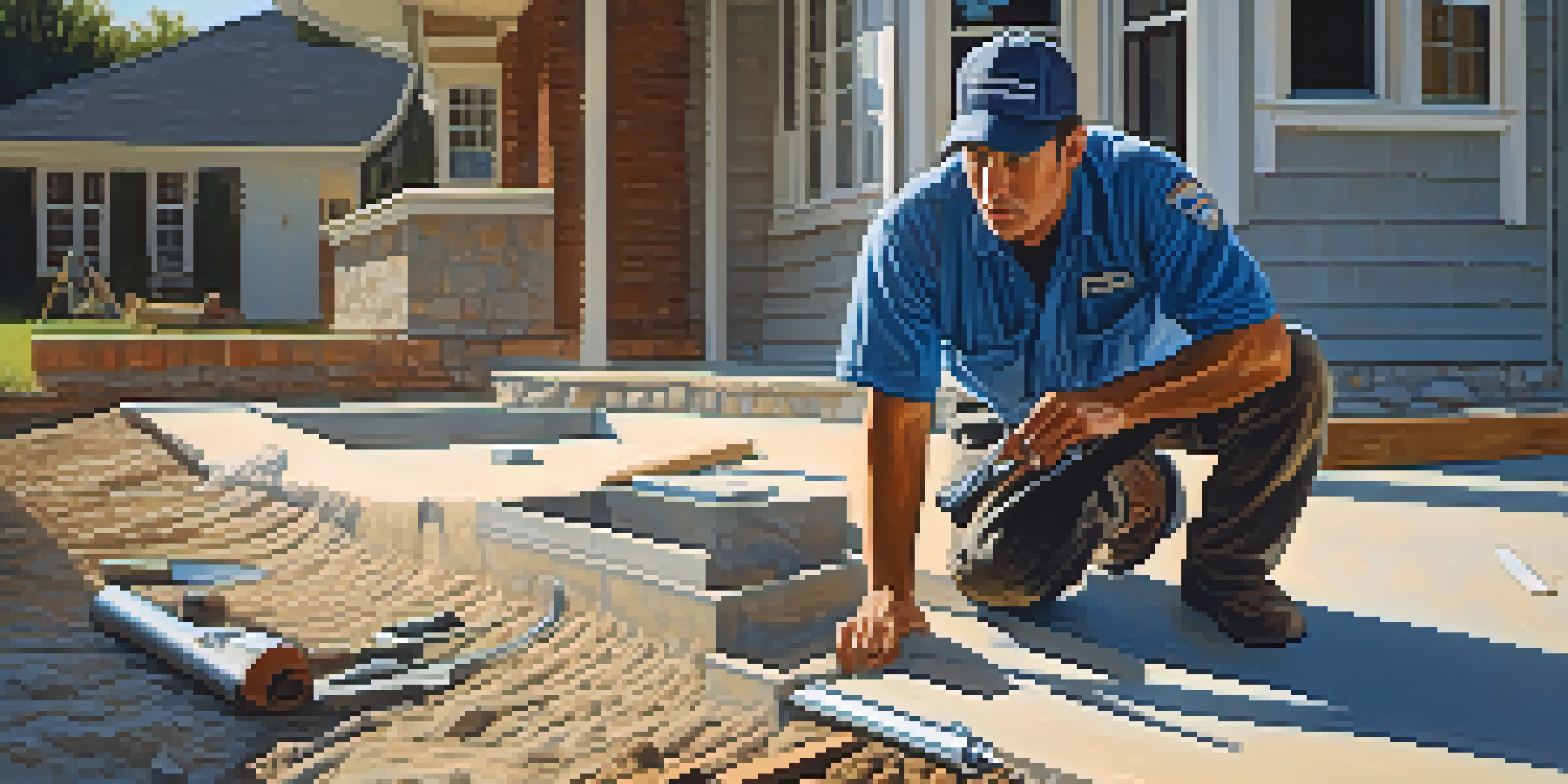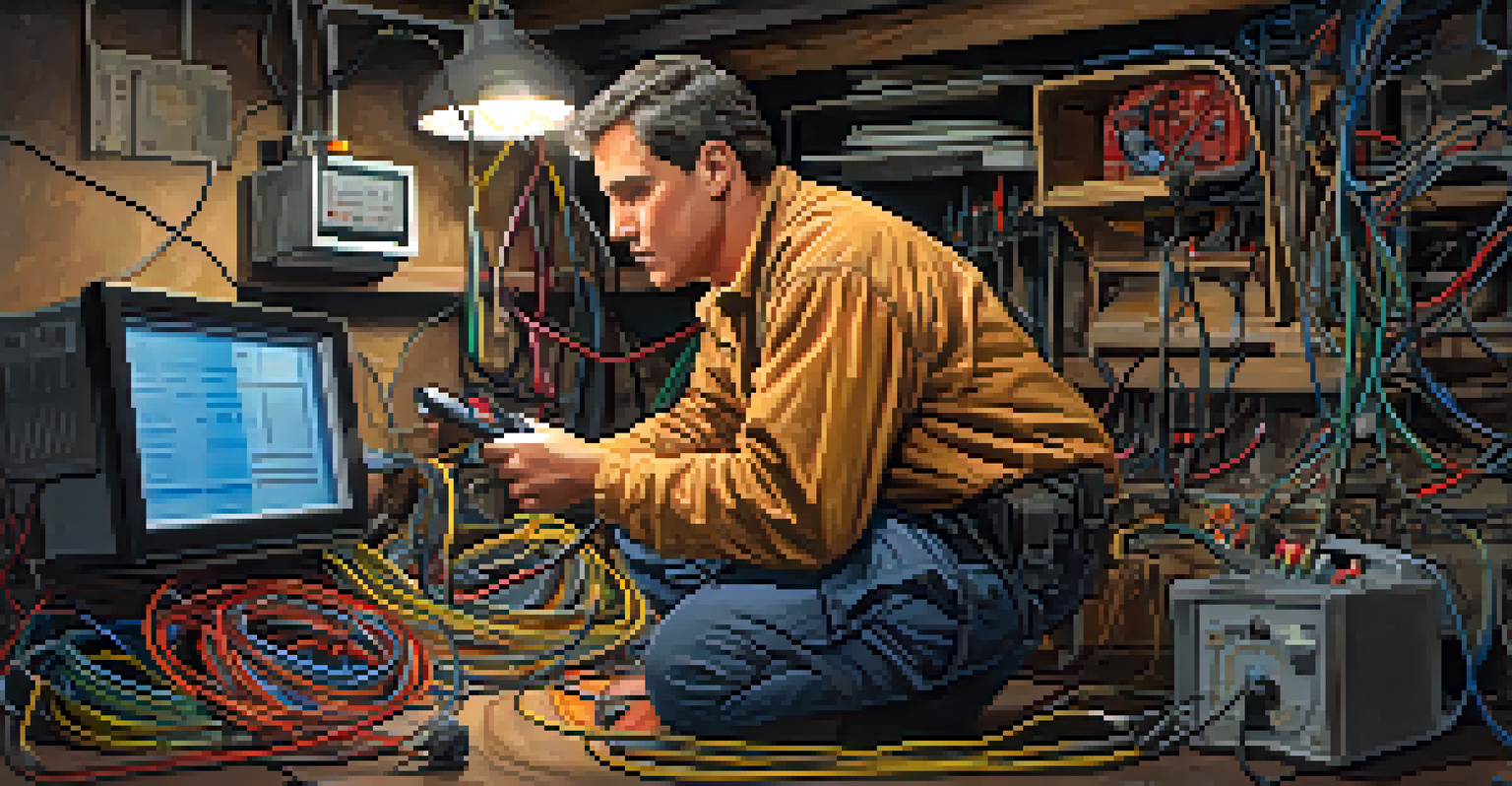What Home Inspectors Test: A Detailed Breakdown

Understanding the Role of Home Inspectors
Home inspectors play a crucial role in the real estate process, acting as the eyes of potential buyers. They help identify issues that may not be visible during a casual walkthrough. By providing a detailed assessment, they ensure that buyers can make informed decisions about their investment.
A house is made of walls and beams. A home is built with love and dreams.
Imagine walking into your dream home only to discover hidden problems later on. Home inspectors help prevent such scenarios by meticulously evaluating various aspects of a property. Their findings can be pivotal in negotiations, giving buyers leverage for repairs or price adjustments.
Ultimately, home inspectors help foster transparency in real estate transactions. Their expertise not only protects buyers but also benefits sellers by instilling trust in the property being sold.
Structural Components: What Inspectors Look For
One of the primary areas home inspectors evaluate is the structural integrity of a house. This includes examining the foundation, walls, and roof for any signs of damage or deterioration. Issues like cracks or uneven surfaces can indicate serious underlying problems that require immediate attention.

For instance, a small crack in the wall might seem harmless, but it could signal foundation issues that could lead to costly repairs in the future. Inspectors are trained to spot these red flags and provide insights on potential repairs. Their observations can save homeowners from significant expenses down the line.
Home Inspectors Ensure Informed Buyers
Home inspectors identify hidden issues in properties, empowering buyers to make informed investment decisions.
By thoroughly inspecting structural components, home inspectors help ensure the safety and longevity of the home. Their assessments provide peace of mind to buyers, knowing the property is sound and secure.
Electrical Systems: Safety and Compliance Checks
Electrical systems are another critical focus during a home inspection. Inspectors assess wiring, outlets, and the overall electrical panel to ensure everything is operating safely and up to code. Faulty wiring can lead to serious hazards, including electrical fires.
The bitterness of poor quality remains long after the sweetness of low price is forgotten.
For example, an inspector might discover outdated wiring that doesn't meet current safety standards. This could pose a risk to residents and necessitate an upgrade. By identifying these issues early, inspectors can help homeowners prioritize necessary repairs.
In addition to safety, inspectors also check for functionality, ensuring that all systems are in good working order. A thorough electrical inspection can save homeowners from future inconveniences and safety concerns.
Plumbing Systems: Assessing for Leaks and Damage
Inspecting plumbing systems is essential for identifying leaks or potential water damage. Home inspectors check pipes, fixtures, and water heaters to ensure everything is functioning properly. A small leak can lead to significant water damage if left unchecked, making this inspection crucial.
For instance, an inspector may spot signs of moisture around a basement pipe, indicating a leak that needs immediate attention. By addressing these issues early on, homeowners can avoid costly repairs and water-related problems down the line.
Structural Integrity is Key
Inspectors evaluate essential components like foundations and roofs to ensure the safety and longevity of homes.
Additionally, inspectors assess the water pressure and drainage systems to ensure they are operating efficiently. A comprehensive plumbing inspection can save future homeowners from unexpected plumbing disasters and costly bills.
Heating, Ventilation, and Air Conditioning (HVAC) Systems
A thorough inspection of HVAC systems is vital, as these systems control the comfort of a home. Inspectors check for proper function, cleanliness, and any signs of wear or damage. An inefficient HVAC system can lead to increased energy bills and discomfort.
For example, an inspector might find that a furnace is nearing the end of its life, indicating that a replacement may be necessary soon. By identifying these issues, inspectors can help homeowners plan for future expenses and ensure a comfortable living environment.
Additionally, inspectors evaluate the ventilation systems to ensure they are providing adequate airflow. Properly functioning HVAC systems contribute to the overall health and comfort of a home.
Roofing: What Inspectors Look for Above
The roof is a home's first line of defense against the elements, making it a critical area for inspection. Inspectors look for signs of wear, damage, and leaks that could jeopardize the integrity of the home. A compromised roof can lead to extensive damage inside the house.
For instance, missing shingles or sagging areas may indicate underlying issues that need immediate attention. Roof inspections are essential, as they can save homeowners from expensive repairs and ensure the home remains safe and dry.
Energy Efficiency Matters
Evaluating insulation and energy systems helps homeowners save on costs and maintain comfortable living conditions.
Inspectors also assess the gutters and drainage systems, ensuring they function correctly to prevent water pooling or damage. A well-maintained roof contributes to the home's longevity and protects its value.
Insulation and Energy Efficiency Evaluations
Home inspectors also evaluate insulation and energy efficiency, which are crucial for maintaining comfortable living conditions. Proper insulation helps regulate temperature and reduces energy costs, making it an important aspect of the inspection process. Inspectors assess insulation levels in attics, walls, and basements for effectiveness.
For example, inadequate insulation can lead to drafts and increased heating and cooling costs. By identifying these issues, inspectors provide valuable insights that can help homeowners make necessary upgrades for improved energy efficiency.

Additionally, inspectors may suggest energy-saving measures, such as sealing gaps or improving ventilation. These recommendations can lead to significant long-term savings, making homes more comfortable and environmentally friendly.
Final Thoughts: The Value of Home Inspections
Home inspections are an invaluable part of the home-buying process, providing peace of mind and protecting investments. By thoroughly examining various systems and components, inspectors uncover potential issues that could impact safety and comfort. Their insights empower buyers to make informed decisions.
Imagine knowing exactly what to expect when you move into a new home, from minor repairs to major updates. Home inspectors facilitate this knowledge, ensuring that buyers are well-equipped to tackle any necessary changes. Their expertise can lead to a smoother transition into homeownership.
In conclusion, understanding what home inspectors test is essential for anyone considering a home purchase. By prioritizing inspections, buyers can confidently invest in their future, knowing that their new home is safe and sound.